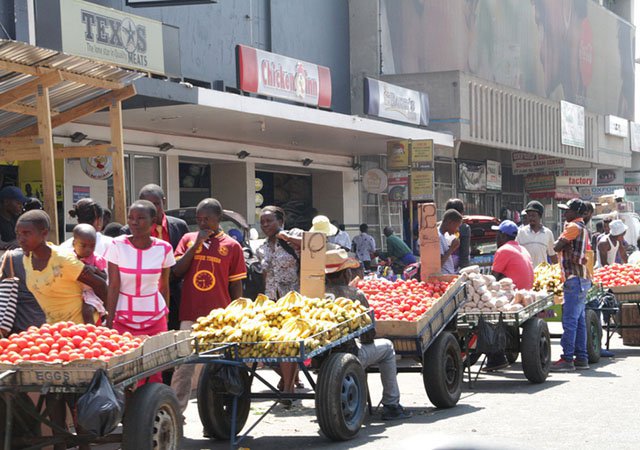by Christopher Makaza
It is shocking and disturbing to learn that our fellow Gweru vendors on Tuesday brought business in Gweru`s Central Business District to a halt as they engage in fierce running battles with the police after they defied a council directive to vacate streets following a typhoid outbreak.
The Ministry of Local Government, Public Works and National Housing together with Gweru City Council last week jointly gave the vendors a 48 hour ultimatum to vacate the CBD as part of their intervention strategies to combat the deadly disease. Surprisingly this did not go down well with the vendors who took to the streets pelting police and council officers and vehicles. A very disturbing video clip of the incident went viral on social media which left people wondering whether violence at that point was worth it, especially if it was being caused by the same people who were supposed to cooperate and assist in fighting the disease.
Although some vendors argued that they could not afford to leave the streets and shop pavements as they are looking for school fees and money for household goods, they lacked to appreciate the fact that it was a temporary measure by the local authority that was meant to protect their own lives and that of their children. Life is a very precious and cannot be bought or batter traded hence should be valued at all cost.
Rumour has it that some political parties with a knack for violence are egging these vendors on for their own nefarious motives.
Whatever the reasons for their resistance, vendors are likely to aid the spread of the water borne diseases because of the nature of their business of selling cooked and uncooked food stuffs including bottled water. According to health experts, typhoid fever is contracted by drinking or eating the bacteria in contaminated food or water. People with acute illness can contaminate the surrounding water supply through stool, which contains a high concentration of the bacteria. Contamination of the water supply can, in turn, taint the food supply. The bacteria can survive for weeks in water or dried sewage and about 3%-5% of people become carriers of the bacteria after the acute illness.
Typhoid response team comprising council, Ministry of Health and Child Care, non- governmental organisations and volunteers have embarked on typhoid awareness campaigns in Mkoba and surrounding areas in an effort to curb the disease. The team is moving around educating residents on water safety, hand washing and disease prevention as well as distributing aqua pills, water buckets and washing soap. It is therefore imperative that all stakeholders including the vendors themselves to cooperate and join forces, complementing government efforts to fight typhoid as anyone anywhere can be affected.
It is disturbing to note that the disease has so far claimed eight lives while suspected cases have risen to over 1500.
Gweru City Council has also embarked on clean up exercises of undesignated dumpsites in high density areas like Mkoba and Senga areas so as to improve hygiene as typhoid continues to be a threat to the Midlands city.
Gweru City Council like many other urban municipalities have been affected by lack of refuse collection trucks to clear waste from both designated and undesignated dumpsites and they are resorting to hiring private trucks which have proved to be very expensive. Harare City Council is also facing shortages of refuse truck as the existing ones are too old to deliver. Fourteen refuse trucks belonging to HCC are stuck in South Africa over forex woes. The trucks which are part of the 30 compactors bought last year from automotive manufacturer Faw Group Cooperation for $3,1 million are still hold up in South Africa due to forex challenges.




